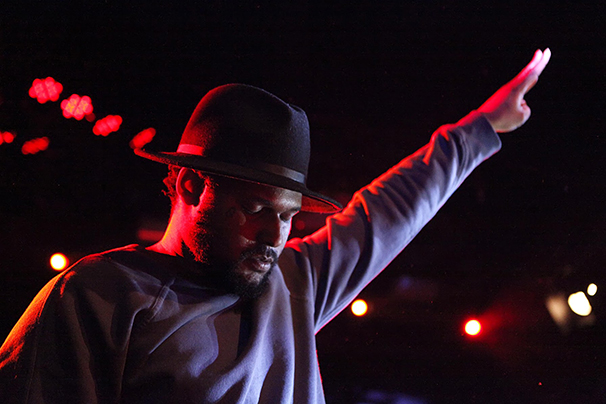
Of all the artists that make up the L.A. rap group Black Hippy, Schoolboy Q might be the hardest to pin down. The media generally labels Kendrick Lamar as the de facto leader of the group, Jay Rock as the burly voice of the street, Ab-Soul as the intellectual young buck and Schoolboy Q as … who, exactly? The oddball? The jester? The druggie?
On Schoolboy Q’s third studio album and major label debut “Oxymoron,” released Feb. 25, the diversity of content and sounds shows that labeling Schoolboy Q would not make sense. He is angry, joyous and despondent all at once.
Spoken by Schoolboy Q’s daughter Joy, the first words of the album opener “Gangsta” begin the project on a strange note. “Fuck rap,” Joy declares in her tiny voice, “my daddy a gangster.” Though a toddler proudly pronouncing profanity in baby talk is obviously a bit contradictory, there is a deeper thematic connection that binds the project together.
As “Oxymoron” unfolds, the listener quickly understands that Schoolboy Q has had a tough past. Apart from some interludes about women and sex, the album primarily describes Schoolboy Q’s experiences dealing and abusing drugs.
These are stories that any run-of-the-mill rapper could write, but “Oxymoron” has important nuances. Joy’s voice is the counterbalance to the street narrative, emerging in unexpected places on the album.
Schoolboy Q’s daughter is an encouraging force in his life, compelling him to take his responsibilities seriously, a dichotomy best explored in the soul-bearing track “Prescription/Oxymoron,” which complicates the album in a thought-provoking way.
Though most of Schoolboy Q’s raps are not particularly lyrical, his straightforward stories create a compelling narrative that drives the album.
“Break the Bank” and “Hoover Street” put listeners in a drug dealer’s mind with gripping vividness while in “Blind Threats,” the rapper reaches a new level of introspection.
While Schoolboy Q does not often feature shrewd metaphors, his nonchalant lines about drugs and crime consistently hit the listener in the gut.
Songs like “Break the Bank,” “Collard Greens” and “Man of the Year” immediately stand out, while ill-fitting, cacophonous tracks like “Los Awesome” could probably have been cut.
“Oxymoron” is a great listen during parties and late nights, but the album cover suggests that there is more to the music than that. It is not just Schoolboy Q smoking at a party or selling drugs on the street — it is his daughter Joy wearing a chain and one of her father’s signature bucket hats. It stops fans in their tracks and gives them pause. It is thought-provoking — a contradiction, an oxymoron.
A version of this article appeared in the Feb. 26 print edition. Peter Slattery is a staff writer. Email him at [email protected].
























































































































































